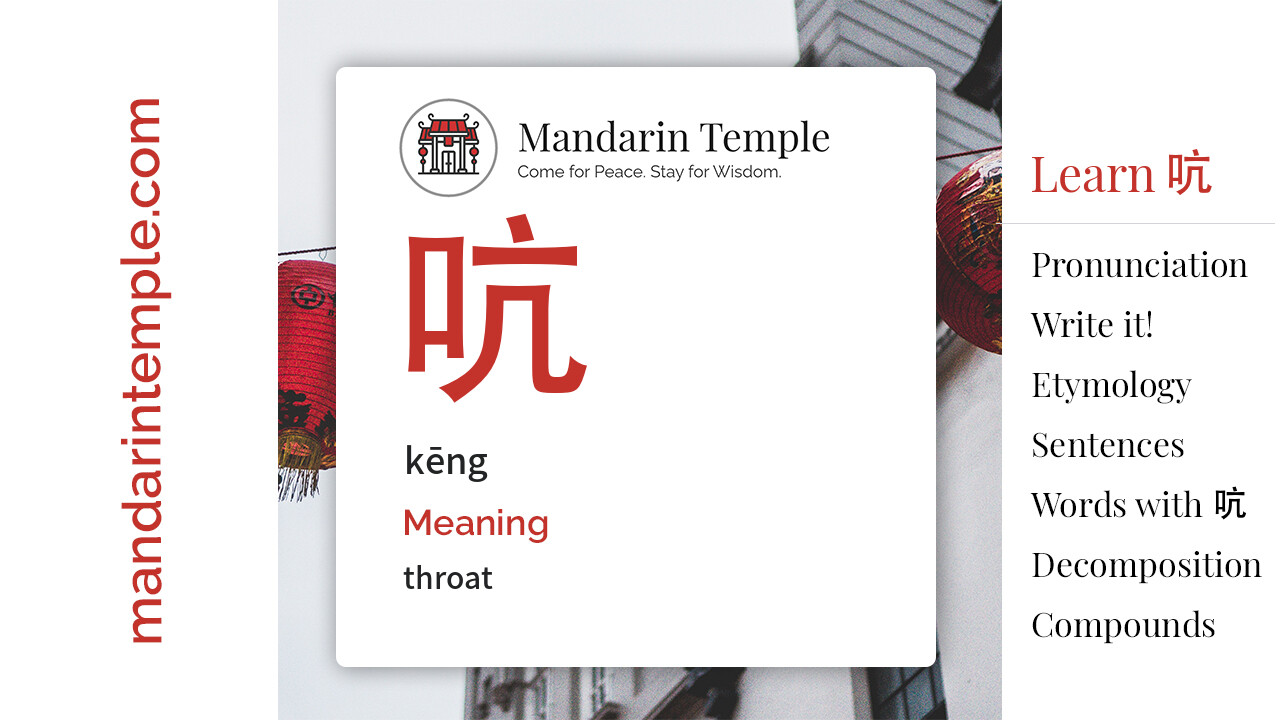Write it!
Practice your Chinese writing skills and learn precisely where and when to draw every stroke of the
Chinese word 吭 kēng .
Press the Show Strokes button to see the strokes and their order and hit Start Drawing when you are
ready to practice.
To complete this step you need to write the word once.
Spread the word
“Do the difficult things while they are easy and do the great things while they are small. A journey of a thousand miles must begin with a single step.”
Lao Tzu Tweet
Example sentences using 吭 kēng
Broaden your vocabulary by interacting with 5 audio-assisted sentences using the Chinese word 吭 kēng in different contexts.
To complete this step you need to listen to each of the five Chinese sentences at least once. and scroll down.
画家 huà jiā 一声不吭 yī shēng bù kēng ,心事重重, 整个 zhěnggè 人 rén 都 dōu 显得 xiǎnde 阴沉沉 yīn chén chén 的 de .
The painter was silent and preoccupied , there was a gloom over him.
他 tā 扛起那 Nā 只 zhǐ 沉重 chénzhòng 的 de 箱子 xiāng zi , 吭哧 kēng chi 吭哧地走 zǒu 了 le .
He heaved the heavy box and staggered off , puffing and blowing from the strain.
他 tā 一声不吭 yī shēng bù kēng 就 jiù 走 zǒu 了 le ,真 zhēn 叫人莫名其妙 mòmíngqímiào .
It is quite baffling that he left without a word.
AMAZON BOOKSHELF
AMAZON BOOKSHELF
